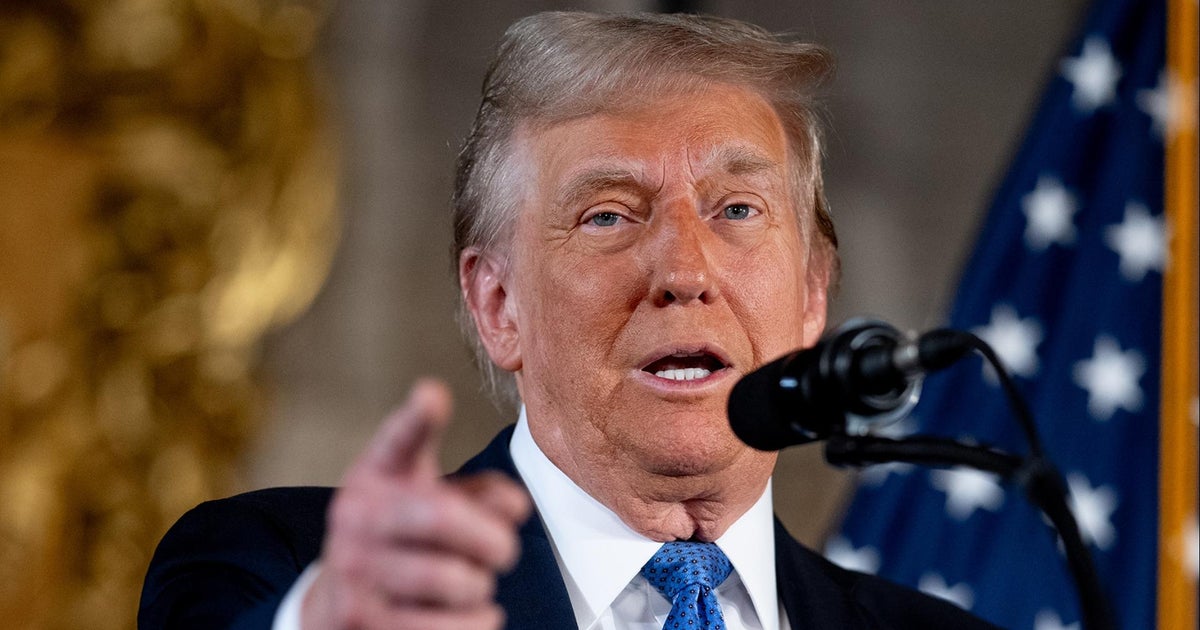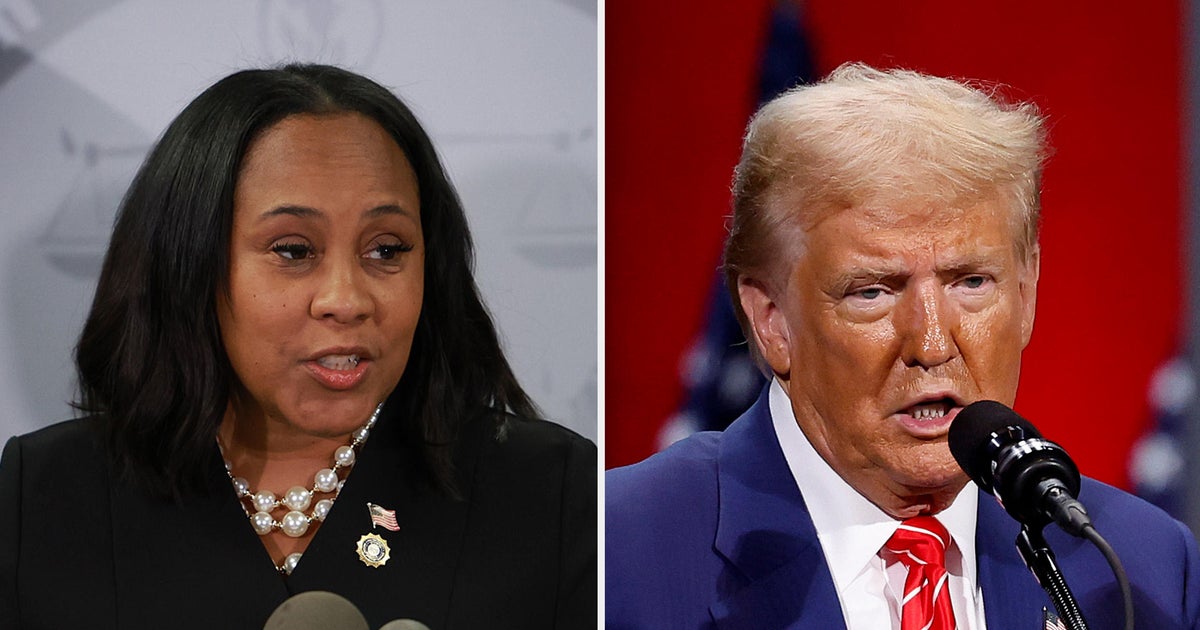U.S. diplomats spent weeks pushing Ukraine to open investigations, texts show
Washington — Diplomats charged with managing the U.S. relationship with Ukraine spent weeks trying to persuade the Ukrainian government to commit to announcing it would open investigations that would help President Trump politically, according to documents released by the House committees leading the impeachment inquiry.
Kurt Volker, the former special envoy to Ukraine who resigned abruptly last week, testified before lawmakers behind closed doors for more than nine hours on Thursday. He provided messages he had exchanged with other diplomats, the president's personal attorney Rudy Giuliani and a high-level adviser to Ukrainian President Volodymyr Zelensky, portions of which were released by House Democrats late Thursday night.
The excerpts show a concerted effort by Volker and the U.S. ambassador to the European Union, Gordon Sondland, to persuade the Ukrainians to open investigations into Burisma, an energy company that hired Joe Biden's son Hunter in 2014, and the 2016 U.S. counterintelligence probe that would become the Mueller probe. The diplomats' actions were taken in concert and aided by Giuliani, who spent months contacting Ukrainian officials to get them to open the investigations.
The Ukrainians were intent on securing a meeting between Zelensky and Mr. Trump at the White House, a dynamic that is evident in the texts released Thursday.
On July 19, ahead of the July 25 call between Mr. Trump and Zelensky at the center of the whistleblower complaint that prompted the impeachment inquiry, Volker had breakfast with Giuliani and said he planned to have a call with Andrey Yermak, an adviser to Zelensky.
"Most impt is for Zelensky to say that he will help investigation—and address any specific personnel issues—if there are any," Volker wrote to Sondland.
The documents show that Ukrainian officials were aware that the investigations Mr. Trump wanted could impact his political prospects. Two days later, on July 21, William Taylor, the chargé d'affaires and top U.S. diplomat in Ukraine, warned that "Zelensky is sensitive about Ukraine being taken seriously, not merely as an instrument in Washington domestic, reelection politics."
On July 25, before the call, Volker wrote that he had "heard from [the] White House."
"[A]ssuming President Z convinces trump he will investigate / 'get to the bottom of what happened' in 2016, we will nail down date for visit in Washington," he wrote, tying the opening of an investigation to a trip by Zelensky to the White House. Yermak, the Zelensky adviser, told Volker the "phone call went well" and that Zelensky had proposed three dates to visit Washington.
Two weeks later, on August 9, Volker and Sondland discussed a potential public statement by Zelensky announcing his commitment to fighting corruption, framing such a statement as a prerequisite for the White House visit. "I think potus really wants the deliverable," Sondland said. "Clearly lots of convos going on."
Sondland also said he would ask Yermak to draft a statement "to avoid misunderstandings." Volker set up a call with Giuliani to discuss the statement that same day.
The next day, August 10, Yermak texted Volker to secure a date for a White House visit before committing to issuing a statement. "I think it's possible to make this declaration and mention all these things," Yermak wrote. "But it will be logic to do after we receive a confirmation of date."
"Once we have a date, will call for a press briefing, announcing upcoming visit and outlining vision for the reboot of US-UKRAINE relationship, including among other things Burisma and election meddling in investigations," Yermak wrote.
Several days later on August 13 — one day after the whistleblower filed the complaint about the Ukraine call — Volker and Sondland had an exchange about the statement. Volker proposed how it might be worded, seeming to write it as Zelensky would deliver it: "I want to declare this is unacceptable. We intend to initiate and complete a transparent and unbiased investigation of all available facts and episodes, including those involving Burisma and the 2016 U.S. elections."
Sondland replied that it was "perfect" and told him to send the draft to Yermak.
Then, on August 29, Yermak texted Volker a link to a Politico story about Mr. Trump's delay of hundreds of millions of dollars in military aid to the country, with the message, "Need to talk to you." The next day, the president canceled a trip to Poland, where he was set to meet with Zelensky.
Taylor, the chargé d'affaires, asked for clarification about what exactly the Ukrainians needed to do to secure a visit to the White House.
"Are we now saying that security assistance and WH meeting are conditioned on investigation?" Taylor texted.
"Call me," Sondland replied.
A week later, Taylor said the delay in military aid was his "nightmare scenario" — "we have already shaken their faith in us."
"I think it's crazy to withhold security assistance for help with a political campaign," Taylor wrote to Sondland and Volker.
Sondland replied that Taylor was "incorrect about President Trump's intentions," saying the president had been "crystal clear: no quid pro quo's of any kind."




